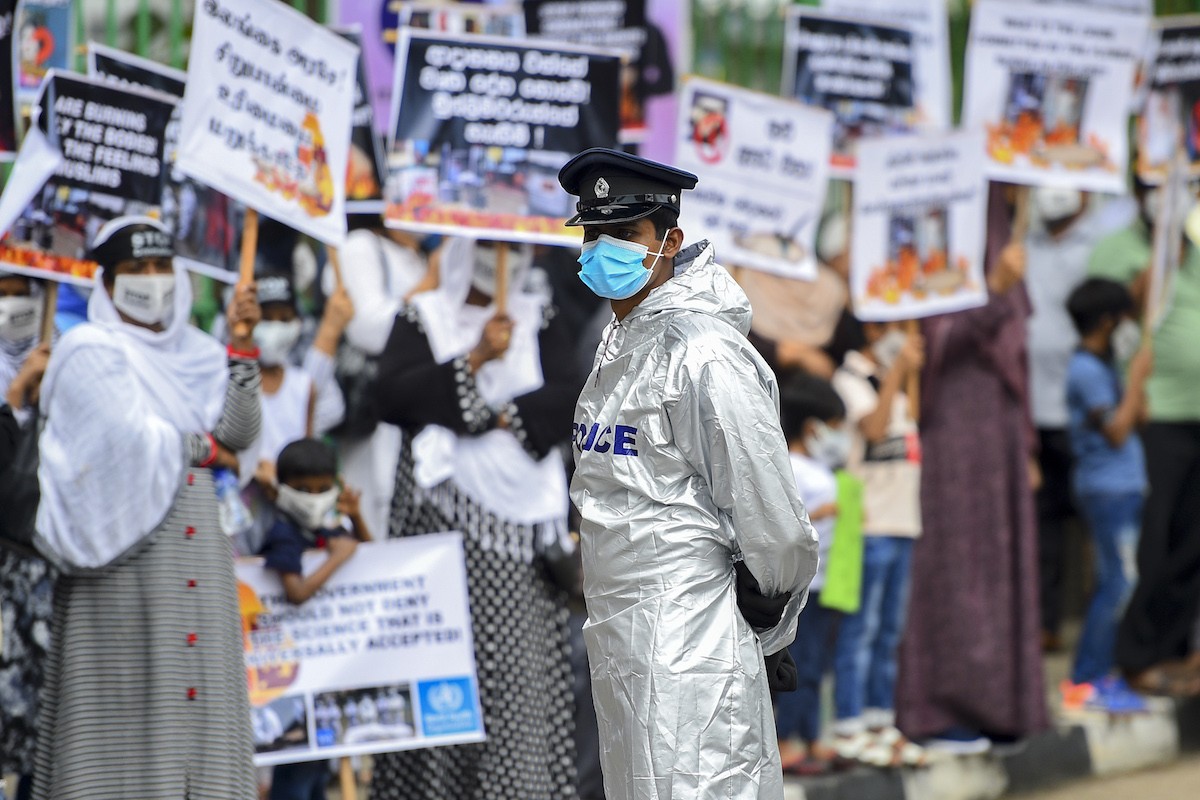UN rights experts ask Sri Lanka to stop forced cremations
January 27, 2021

A group of UN human rights experts have called on the Sri Lankan government to end its policy of forced cremation of Muslims who died of COVID-19.
In a statement, three UN special rapporteurs warned that the policy could foment existing prejudices, intolerance, and violence.
“The imposition of cremation as the only option for handling the bodies confirmed or suspected of COVID-19 amounts to a human rights violation,” read the experts’ statement.
“There has been no established medical or scientific evidence in Sri Lanka or other countries that burial of dead bodies leads to increased risk of spreading communicable diseases such as COVID-19,” they added.
The statement was signed by Ahmed Shaheed special rapporteur on freedom of religion or belief; Fernand de Varennes, special rapporteur on minority issues; and Clement Nyaletsossi Voule, special rapporteur on rights of peaceful assembly.
Earlier, a Christian human rights group decried the decision of Sri Lanka to cremate all COVID-19 victims despite international appeals to allow Muslims to bury their dead in line with Islamic custom.
“The denial of basic burial rites only adds to the ongoing vilification of Muslims,” said Mervyn Thomas, president of the group Christian Solidarity Worldwide.
He noted that attacks on Muslims in the country have been taking place for many years “due to hatred and incitement propagated by far-right religious nationalists.”
As of Jan. 27, at least 288 COVID-19 related deaths were reported in Sri Lanka, with many of those who died being Muslim.
For Sri Lanka’s Muslim community, which accounts for nine percent of the population, burials are mandatory under Islamic law.
All of the bodies were cremated in line with the fourth amendment of the Provisional Clinical Practice Guidelines on COVID-19 suspected and confirmed patients issued on March 31, 2020.
“The decision to make cremation mandatory followed alleged expert advice, including by the chief epidemiologist who claimed that burials could contaminate ground drinking water,” read the UN experts’ statement.
The World Health Organization has earlier said that there is no evidence to suggest that burial prevents the spread of the disease.
Even the College of Community Physicians of Sri Lanka and the Sri Lanka Medical Association have issued statements clarifying that there has been no proof that the burial of COVID-19 dead bodies constitutes a public health hazard.
The UN experts deplored the implementation of public health decisions “based on discrimination, aggressive nationalism and ethnocentrism amounting to the persecution of Muslims and other minorities in the country.”
Courtesy: LiCAS.news



